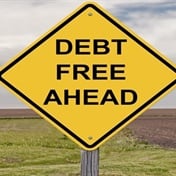
Cape Town - Compulsive buying disorder (CBD) leads to worrying levels of debt for 85% of people who suffer from this.
In psychiatric circles, it is still being debated whether CBD is an addictive disorder, or an obsessive-compulsive disorder or a mood disorder. Whatever the decision may be, the habit of excessive shopping leads to distress or impairment, according to the National Institutes of Health. The article mentions a ‘senseless contraction of debts” as a result of this behaviour.
As in the case of other addictive behaviours, those with CBD are preoccupied with shopping, and devote much time to this. People who suffer from CBD often feel an increased sense of anxiety, which is only relieved when they buy something. This behaviour has a negative impact on their lives, as they are often unable to meet the debts incurred by these shopping sprees. Often they also lose all interest in the items after they have been purchased.
Hoarders are frequently also compulsive shoppers and it is not unusual to find several identical items in their houses with the price tags still attached.
But back to the sometimes insurmountable debts caused by these shopping expeditions.
There are mainly three types of debt incurred by South Africans, according to Neil Roets, CEO of Debt Rescue: one for pure survival, one to maintain what they see as a normal lifestyle, and then those who maintain a life of luxury on credit.
While many people associate compulsive shopping with living a life of luxury, studies have revealed that this is not always the case. Here’s more about this, and other interesting facts about compulsive shoppers:
1. People with a low income can be compulsive shoppers as well, but they tend to shop at outlets where prices are lower, or at garage sales.
2. There are four stages of CBD, according to an article published by the National Institutes of Health: anticipation, preparation, shopping, and spending.
3. As with many addictive behaviours, people with CBD are reluctant to admit that they have a problem, according to addictions.com. Their shopping habits create problems in their relationships with friends, partners and family members.
4. Many people who are compulsive buyers buy items they don’t need, cannot afford, or cannot use. It’s about the act of buying rather than the product itself.
5. The most popular items (in descending order) bought by compulsive shoppers are clothing, shoes, CDs, jewellery, cosmetics and household items according to an article published in the Journal of Clinical Psychiatry. These items are often regarded as bargains, and are frequently bought in quantity.
6. Studies have revealed that 80% of people with CBD are women, but researchers warn that men with the disorder tend to define themselves as ‘collectors’ rather than shoppers.
7. People with CBD tend to shop by themselves.
8. CBD is often associated with mood and anxiety disorders, disorders of substance abuse and other disorders of impulse control.
9. CBD tends to run in families and is found worldwide in both rich and poor communities.
10. Different studies (US, Europe and Brazil) estimate between 2% and 16% of the population to be compulsive shoppers.
11. People with CBD often have family members who suffer from depression, or substance abuse problems.
12. CBD often manifests in the late teens or early twenties.
13. The act of buying is often preceded by a feeling of depression, tension, or boredom, according to the journal Clinical Psychology and Psychotherapy.
14. The act of buying gives compulsive shoppers a ‘rush’ or a feeling of euphoria, but it seldom lasts.
15. After a shopping spree, most people with CBD experience feelings of disappointment, guilt, anger and anxiety.
16. Not having ready cash is not an obstacle for people with CBD, as many of these purchases are made with credit cards or on shop accounts.
17. Purchased items are often not used at all, hoarded, hidden, given away or forgotten, according to a study published in the journal Clinical Psychology and Psychotherapy.
18. The above-mentioned article also notes that repeated efforts of people with CBD to stop their behaviour are often unsuccessful, despite negative consequences such as massive debts and legal problems.
19. Antidepressants can help to alleviate CBD, according to a report from Stanford University.
20. Treatment is also given in the form of cognitive-behavioural therapy (CBT) which according to the National Health Services is "a talking therapy that can help you manage your problems by changing the way you think and behave".
*Add your voice by sharing your debt experiences, debt-busting tips and insights. Have a question? Ask our experts.




 Publications
Publications
 Partners
Partners











